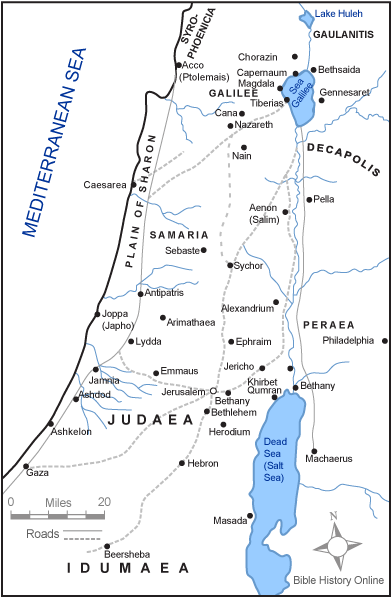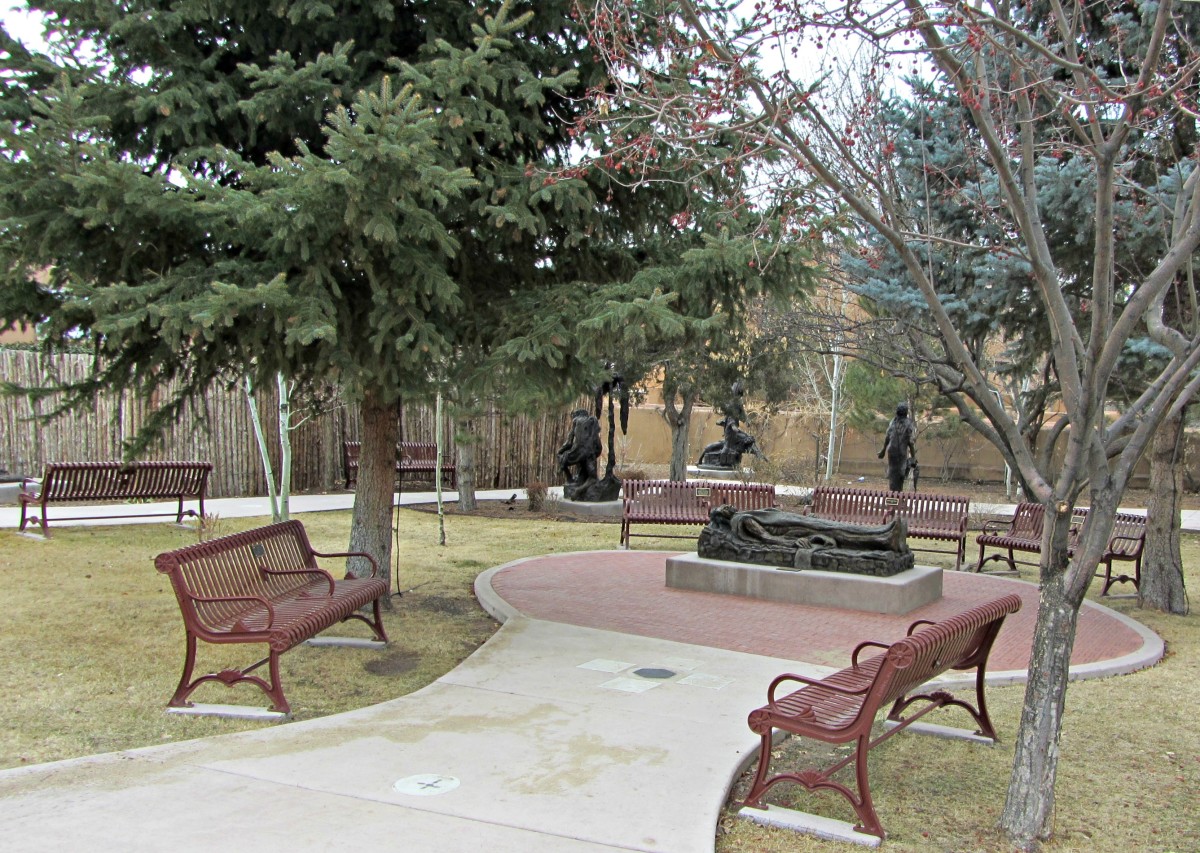How to Say Grace
Grace Before Meals
Sometimes when we Christians are visiting a friend's home, we may be asked, as the guest, to say Grace before a meal. We may say Grace before meals at home, and if we are Christians we really should, but we may be unsure of what is expected and wonder what we should say. Should we pray a set prayer, a Grace that we already know, or should we offer an extempore mealtime prayer?
If we are asked to pray before a meal, then an extempore prayer is what is required, but if we are asked to say Grace, then that is what we should do: say a Grace that we know and that would be suitable for the occasion. The term 'saying Grace' gives it away.
So what exactly is a Grace, how should we say it, and how did this tradition of saying Grace come about?
What is a Grace?
For Christians and Jews, a Grace is a brief prayer of thanks to God for the provision of our food. It is said either before or after a meal, and in some families it is said both before and after. However, there is more to it, so far as structure goes.
Linguists and people who study language would categorize Grace as being a speech event that is produced in formal language and that it is in a separate style or genre. It is especially distinctive in two ways:
- A Grace is recited.
- A Grace is structured in semantic couplets.
An example of a Grace that fits this description and is recited or sung in both families and more formal situations would be:
'Be present at our table, Lord,
Be here and everywhere adored;
These creatures bless and grant that we
May feast in Paradise with Thee.'
Note: There is a variety of final lines to this Grace, including
'May spend our lives in serving Thee.' 'May live in fellowship with Thee.'
How Do we Say Grace?
Grace is said in a number of different ways.
Family Grace: Grace is often said by one member of the family while they are all are sitting around the table; they bow their heads and close their eyes. One popular Grace is:
'Morning/ Noontime/ Evening is here, the board is spread,
Thanks be to God who gives us bread. Amen.'
A fun Grace that also has meaning:
'God who blessed the loaves and fishes
Bless this food upon our dishes,
And like the sugar in our tea
May we all be stirred by Thee. Amen'
When children are present the family may put their hands together in an attitude of prayer, or they may all hold hands around the table as they bow their heads and close their eyes. A children's grace that can be said or sung is:
'Thank you for the world so sweet,
Thank you for the food we eat,
Thank you for the birds that sing,
Thank you, God, for everything.' Amen.
Some families do not sit down until after Grace is said, but stand with heads bowed behind their chairs, with their hands on the back of the chair.
Wedding Grace: I wrote the following Grace after a visit to the Holy Land and it has been used at a number of weddings:
'Lord, who at Cana blessed the wine,
Bless this food before we dine,
Bless the two you've made as one,
And may we all have lots of fun!'
Sung Grace: In some families, Grace is sung. Members of the family may take turns to choose the Grace that is to be sung. Singing grace is popular in public meals, too, such as at church community meals, church camps, Girl Guides, Girl Scouts, CEBS and similar groups. There are even Graces that can be sung as Rounds and the part-singing can be a joyous thanksgiving. A popular one is 'Johnny Appleseed', and one that can be sung as a round is 'For Life and Health.'
Chanted Grace: In some religious communities Grace is chanted. It may be in plainsong style and in Latin or in the local language. It will still be comparatively brief, may be sung in parts and can be very beautiful.

How Did Saying Grace Begin?
Saying Grace began so long ago that it is not known when it actually began, but it can be found in a number of different cultures.
- The Ancient Romans and Others: The Romans gave us the word, Grace, when they used the Latin word, gratia, meaning 'gratitude.' The custom of saying Grace is not exclusively Christian. Well before Christian times the Romans thanked the gods for their food and wine; the Greeks praised Zeus. People of many religions thank their deities for their food, Buddhists recite an ancient thanks to Buddha and it is much longer than many of our graces.
- The Old Testament: God's people of the Old Testament thanked God for their food. Over three thousand years ago, in 1 Samuel 9.13, we read that the people were not permitted to eat the sacrifice until it had been blessed.
- The New Testament: The blessing of food is frequently mentioned in the New Testament. Food plays an prominent part in the Gospels: In Luke alone, food or sharing a meal is mentioned some nineteen times. Then there are the occasions when Jesus gave God thanks for the five loaves (John 6.11) and when He blessed the bread in the institution of the Lord' Supper (Matt. 26:26). We still use these words in our Holy Communion liturgy.
- In later books of the New Testament, Paul took the bread and gave God thanks (Acts 27.35) and in his letters he instructed the people to give God thanks always for whatever they ate or drank (1Cor. 10.31). He also decreed that if food were offered to Christians, it should not be refused if it has first been made holy by prayer and thanksgiving (1 Tim. 4.4,5).
- In Christian Times in Europe: Several hundred years ago, when schools and universities developed more formally in Europe and Britain, fixed forms of Grace were set for recitation, often for both before and after meals. These were most frequently said in Latin and are still used today in some colleges and universities.
So we find that to give thanks to God for our food, to say Grace, is a deep-seated, historical custom.
Saying Grace is Thanking God
Food is a necessity for sustaining life and it is important to thank God for His bounty and to ask Him to sanctify it for our bodies. We should never forget to thank Him for this blessing, nor should we skip saying Grace. Whether we are at home by ourselves or in a group in a restaurant, we should remember His love for us in the whole of our lives.
When we say Grace, we should be careful that we are not simply performing a ritual recitation, but that we really mean the words that we use.
The Bible and Christianity
- Forgiveness and Spiritual Health
The article defines, looks at and compares forgiveness in the Old Testament and the New Testament. When we do wrong we must ask for and accept God's forgiveness, forgive those who wrong us and forgive ourselves if we are to attain spiritual health. - A Meditation on Psalm 32 - Taizé Style
A meditation for Lent that combines Psalm 32, prose and poetry. When we pray to be forgiven God cleanses us from sin and surrounds us with His love now and for all eternity. - Three or Four Leafed Clover
The word 'luck' has been around for a long time and we often use it. Many people have good luck charms or a four-leaf clover, but St. Patrick used a three-leaf shamrock to teach the Irish about the Trinity. Christians should rely on God not on luck. - Billy Graham's Australian Crusades 1959
1959 heralded a change in the life of our family, but that year also brought the Billy Graham Crusade to Australia for the first time. It was the catalyst for change for many Australians as they made a commitment to give their lives to Jesus. - How Can We Keep Sundays Holy?
The Fourth Commandment tells us to take a day of rest, but we rarely seem to find time to do this. Rest is as important for our spiritual and physical well-being as rests are in music as they contribute to the harmony. - Communication in a Changing World
Distance communication began in prehistoric times and some of these methods have continued almost until present times. Communication developed slowly over the centuries, but more recently, perhaps beginning with the printing press and escalating. - Bible Storytelling by The Backyard Bards at CMS Summer Under the Son
At the Church Missionary Society's Summer Conference we heard Bible storytelling by a group called The Backyard Bards. It was dramatic, passionate and mind-blowing. We heard Bible passages as we had never heard them before and will never forget.








